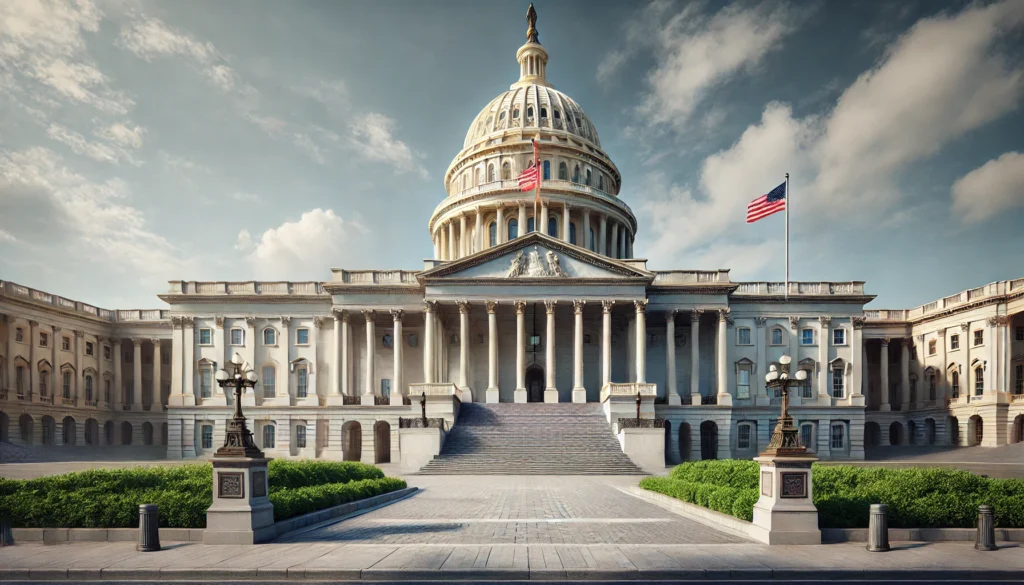In an era where cannabis reform is gaining traction across the country, a new bipartisan bill is aiming to bridge a critical gap in criminal justice reform. The new bill, introduced by Reps. Kelly Armstrong (R-ND) and David Trone (D-MD), alongside four other cosponsors, is designed to address an overlooked issue: expunging criminal records for individuals who have received presidential pardons. While pardons offer symbolic forgiveness, they often fail to erase the lasting consequences of a criminal record, leaving individuals struggling to fully reintegrate into society. This legislation seeks to change that.
At its core, the Weldon Angelos Presidential Pardons Expungements Act, or H.R. 10248, underscores the need for tangible action to complement the symbolic gesture of presidential pardons. This is especially critical for individuals with non-violent marijuana convictions, as the legal landscape for cannabis evolves and public sentiment shifts in favor of reform. By tackling this issue head-on, the proposed legislation not only acknowledges the societal inequities tied to criminal records but also provides a pathway for affected individuals to move forward without the burden of their past mistakes.
The Symbolic Limits of Presidential Pardons for Cannabis
While a presidential pardon carries significant weight in terms of forgiveness, it doesn’t erase the existence of a criminal record. This distinction is more than a legal technicality—it has real-world implications. Criminal records, even for pardoned offenses, remain accessible and can create significant barriers for individuals attempting to rebuild their lives. From finding employment to securing housing, a criminal record can hinder access to essential resources, perpetuating cycles of inequality.
The findings section of the bill highlights this issue, stating that many pardon recipients face challenges to fully participating in their communities and leading productive lives. President Joe Biden, who issued mass marijuana pardons for possession offenses in 2022, initially claimed these actions expunged criminal records. However, he later clarified that pardons alone fall short, noting that record expungement is a necessary step to achieve meaningful reform.
What The Weldon Angelos Presidential Pardons Expungements Act Proposes
The Weldon Angelos Presidential Pardon Expungements Act aims to implement a system that would allow for the expungement, sealing, or redaction of federal criminal records tied to low-level offenses, including non-violent cannabis convictions. Named after Weldon Angelos, a former cannabis convict who received a presidential pardon during the Trump administration and has since become a vocal advocate for reform, the bill reflects a commitment to addressing the collateral damage caused by outdated drug laws.
Under the proposed legislation, the Administrative Office of the United States Courts would have one year to establish rules for processing expungements. Federal district courts would be required to conduct a comprehensive review of eligible cases within two years of the bill’s enactment, providing relief to those who qualify. Additionally, individuals would have the option to proactively petition courts for a review of their records, ensuring that the process is accessible and inclusive.
This bill follows another cannabis-focused measure introduced earlier this year by Reps. Armstrong and Troy Carter (D-LA). While the previous bill also sought to expunge low-level cannabis convictions, it emphasized misdemeanor cases and included provisions for courts to recommend presidential pardons. The new legislation broadens the scope by addressing the records of individuals who have already received pardons, highlighting the bipartisan commitment to comprehensive criminal justice reform.
A Step Toward Cannabis Equity and Rehabilitation
The legislation argues that expunging records for pardoned individuals would not only help them reintegrate into society but also promote rehabilitation, reduce recidivism, and benefit society as a whole. Removing the stigma and barriers associated with a criminal record can unlock opportunities for individuals to contribute meaningfully to their communities, while also alleviating the negative impacts on their families.
For people like Weldon Angelos, whose cannabis conviction and subsequent advocacy have become emblematic of the need for reform, this bill represents more than just policy—it’s a lifeline. It’s an acknowledgment that forgiveness must be accompanied by action, and that the justice system must evolve to reflect the changing attitudes toward cannabis and criminalization.
A Path Forward for Cannabis Justice and Reform
The Weldon Angelos Presidential Pardon Expungements Act marks an important step in addressing the lasting consequences of outdated drug policies. By creating a pathway to expunge the records of those who have already been pardoned, the bill acknowledges the symbolic limitations of clemency and offers a tangible solution to the barriers faced by these individuals.
One such individual is Edwin Rubis, whom we are asking for President Biden to pardon from prison before he leaves office.

As the United States continues to grapple with the broader implications of cannabis reform and criminal justice inequities, this bipartisan legislation represents a meaningful effort to provide second chances and dismantle systemic obstacles. If enacted, it could help thousands of individuals move forward with dignity, free from the weight of past convictions.
This isn’t just about expunging records—it’s about setting a precedent for a more compassionate and equitable justice system.




